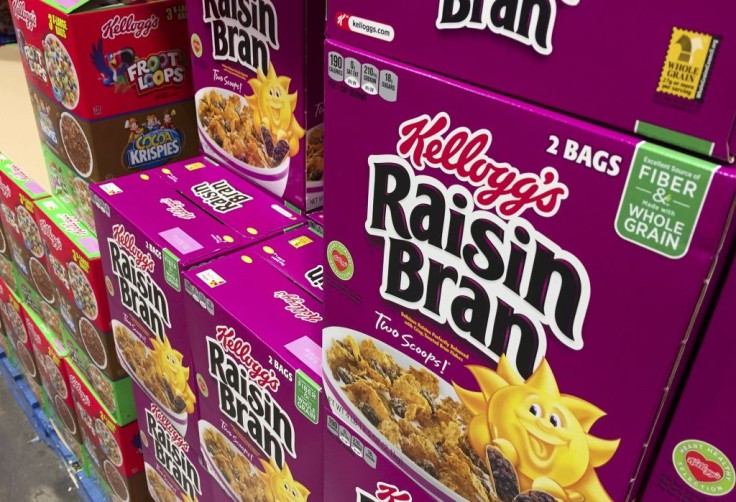
A court has ruled that Kellogg's can no longer promote sugary cereals in supermarket special offers. Kellogg's is one of the world's leading cereal producers and a top producer of convenience foods, including cookies, crackers, toaster pastries, cereal bars, frozen waffles, and meat alternatives.
Under the new rules for England, in-store promotions of food and drinks high in fat, salt, or sugar are now restricted. Kellogg's had taken the government to court, asserting and arguing that the rules did not consider the nutritional value of added milk.
However, the Royal Courts of Justice ruled in favor of the government, and Kellogg's said they were disappointed by the decision.
Chris Silcock, Kellogg's U.K. Managing Director, stated, "It makes little sense to us that consumers will be able to buy other products, like donuts and chocolate spreads, on promotion - but not many types of breakfast cereals," per Yahoo News.
Kellog's take on the court's decision
The judgment of promotional restrictions per location was expected to deliver more than £57bn of health benefits, which is strongly welcomed by the Department of Health and Social Care.
From October, foods deemed high in fat, salt, or sugar will now be banned from checkouts, store entrances, aisle ends, and corresponding online equivalents.
The company argued that adding milk would change the computation by diminishing the proportion of sugar and salt content relative to the weight of the overall serving. Kellogg's stated that data in the independent market showed that cereals are eaten with yogurt or milk in nearly 92 percent of all cases, according to BBC.
Read Also : Kellogg Cereal, Snacks To Stop Using Artificial Ingredients By 2018 -- Healthy Snack Ideas For Kids
Royal Courts of Justice
At a High Court yesterday, Judge Mr Justice Linden dismissed the claim, stating that the issue of the process of how cereals are consumed and measured had been considered and resolved in many ways, especially in consultations.
He added that Kellogg's cereals do not have instructions for preparations on how they should be consumed with milk. He also said there was no dispute that such cereals in breakfast can be an element of a healthy diet.
However, in an article in Nursery World, he voiced out that promoting such nutritional benefits of a specific breakfast cereal does not influence nor affect the point that if it contains excess sugar or salt and fat, which is a feature of a product, it is adverse to one's child's health.
Nor is mixing a breakfast cereal that is, for example, high in sugar with milk only alter the fact that it is beyond high in sugar.
His judgment concluded no injustice nor unfairness to Kellogg's, and the public health case for the new rules was compelling, proportionate, and rational.
Silcock said they would not appeal against the court's judgment but urged the government to rethink and consider the sake of the consumers as they will have less choice and possibly higher prices.
Related Article : Heavily fortified foods may be harmful to our children: study